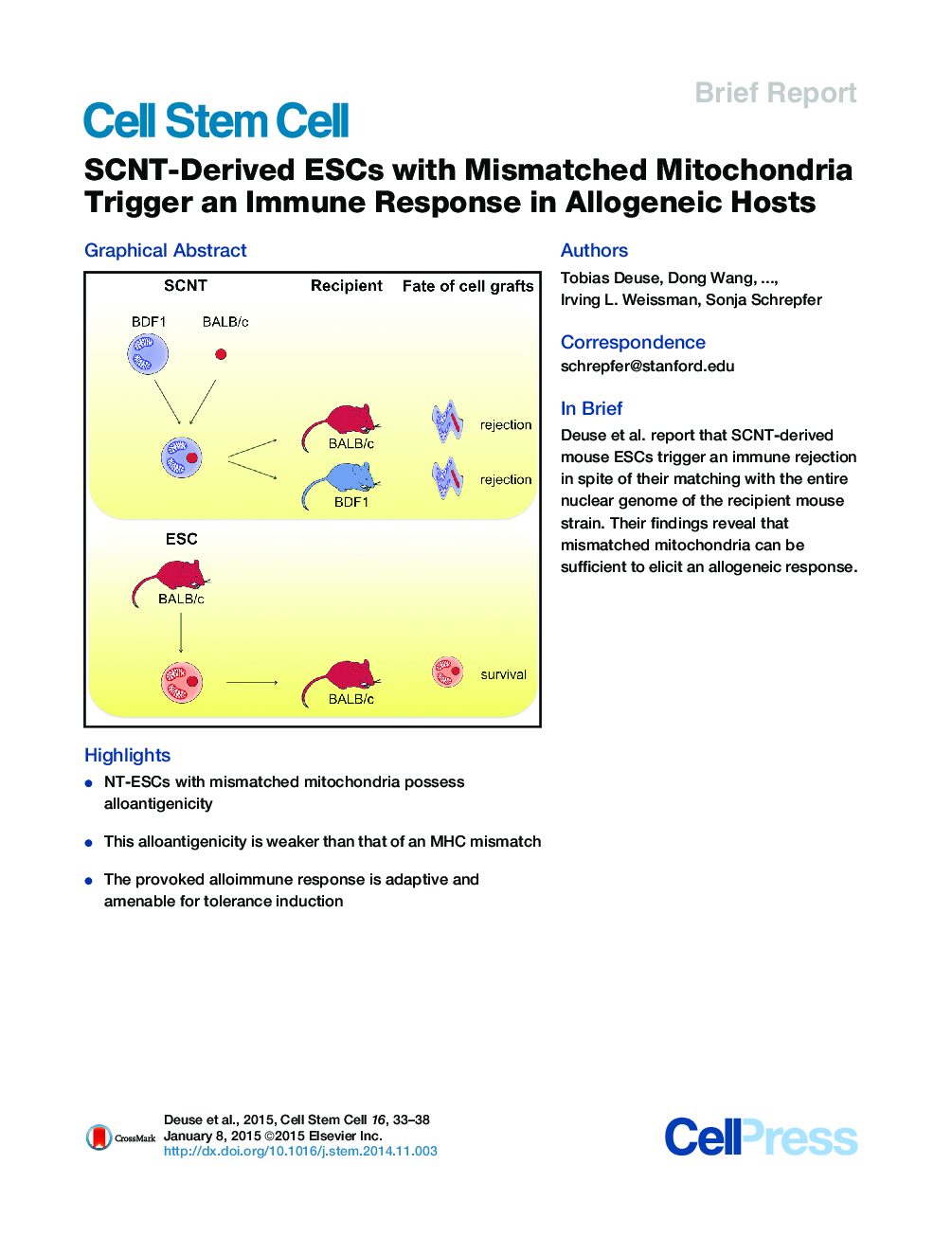| کد مقاله | کد نشریه | سال انتشار | مقاله انگلیسی | نسخه تمام متن |
|---|---|---|---|---|
| 2077288 | 1079696 | 2015 | 6 صفحه PDF | دانلود رایگان |

• NT-ESCs with mismatched mitochondria possess alloantigenicity
• This alloantigenicity is weaker than that of an MHC mismatch
• The provoked alloimmune response is adaptive and amenable for tolerance induction
SummaryThe generation of pluripotent stem cells by somatic cell nuclear transfer (SCNT) has recently been achieved in human cells and sparked new interest in this technology. The authors reporting this methodical breakthrough speculated that SCNT would allow the creation of patient-matched embryonic stem cells, even in patients with hereditary mitochondrial diseases. However, herein we show that mismatched mitochondria in nuclear-transfer-derived embryonic stem cells (NT-ESCs) possess alloantigenicity and are subject to immune rejection. In a murine transplantation setup, we demonstrate that allogeneic mitochondria in NT-ESCs, which are nucleus-identical to the recipient, may trigger an adaptive alloimmune response that impairs the survival of NT-ESC grafts. The immune response is adaptive, directed against mitochondrial content, and amenable for tolerance induction. Mitochondrial alloantigenicity should therefore be considered when developing therapeutic SCNT-based strategies.
Graphical AbstractFigure optionsDownload high-quality image (332 K)Download as PowerPoint slide
Journal: - Volume 16, Issue 1, 8 January 2015, Pages 33–38